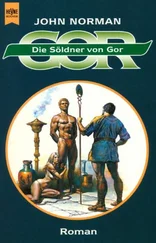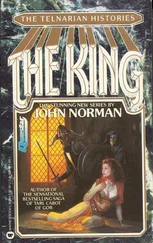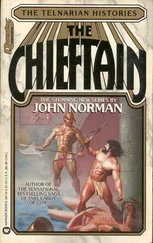“Ho, behold the bumpkin!” cried a fellow, pointing to the giant.
The giant did not think it would need chains to hold the fellow. A cord would suffice, as it would with a woman.
The giant followed his companion through the streets. Aromatic herbs, in this district, had been crushed and scattered on the stones. The emperor was now in residence, here, on this summer world, in one of the many summer palaces. Indeed, it was just that many-walled domicile, with its polychromatic, labyrinthine geodesies, which constituted the destination of the giant and his companion.
“Lout, boor!” called another fellow.
But they did not approach more closely. It was easy for them to be bold, at a distance, and, too, for the guards, a squad of nine, with rifles, who accompanied the giant and his companion through the streets. Perhaps they thought that the giant was a prisoner. But he was not such. Had that been wished, it might easily have been managed in other places, and at other times, on the first ship, for example, on which they had taken their leave from the Meeting World.
“Cur, clod!” cried a man.
The giant wondered how the fellow might stand up against an ax attack.
“It is not far now,” said the giant’s companion.
In this district, near the summer palace, no vehicular traffic, save for official vehicles, usually armored, was permitted. It would have been too easy to approach the walls, and the metal of the vehicles might have masked the metal of weapons, and the vehicle might have served as a launching weapon, or as the weapon itself.
The giant enjoyed walking, and movement, and running, as after bark deer in the forests, for sport. One could pursue the delicate beast for hours at a time, and then, at the end of the hunt, when they lay helpless, gasping on the leaves, lungs heaving, unable to move, eyes wild, one could kill them, or let them go. Sometimes one carried them back to the village, on one’s shoulders, to pen them and see to it, later, that they were mated, thence to be released, pregnant, to the forests, later in soft glades to deliver wet, awkward fawns, destined in time to be the swiftest of the swift. The eggs of hunting birds, too, were sometimes stolen from nests, to be hatched by vardas in their coops, the hatchlings later to be trained to the wrist and thong. Many were the pastimes, and sports, of the forests. And high among them, one of the most pleasurable, was the mastery, and use, of female slaves. These, too, at the master’s discretion, could be judiciously mated.
“Lout, peasant!”
His large frame had been cramped in the seat cubicles of the snakelike limousine which had brought them from the hostelry near the port to the pomerium of the sacred district, within which lay the summer palace.
“Soil worker! Peasant!”
The giant had indeed, at one time, been a peasant, a denizen of a small village, a festung village, the festung village of Sim Giadini. It is in the vicinity of the heights of Barrionuevo. This range is located on the world of Tangara. He did not understand why the work of the peasants, or the peasants themselves, should seem so scorned here, and by such a dirty, ragged swarm. Did they not eat? Did they not owe their lives, in a sense, to the labor of such as he once was? Were they so much better than they upon whose labor they depended? Did they think it easy to guide the plow, to turn heavy soil, to harrow and disk the fields, to judge seeds, to plant properly, in suitable times and places, to toil long hours, when one’s back was nigh onto breaking, to resist a relentless sun, to hope for rain, which might not come, to be so hungry at times, to have to yield the tithes to the lofty festung of Sim Giadini, almost lost in the clouds of the heights?
“Get back!” cried his companion, gesturing toward one of the bolder of the unsolicited escort. But he did not care to touch him. “It is not that they believe you are a peasant,” he said to the giant. “It is merely a term of abuse.”
They continued on their way.
The peasant had not been born in the festung village. He did not know where he had been born.
He had left the village after killing a man, one named Gathron, who had been his best friend. He had broken a post over his back, and watched him die, at his feet. Gathron had attacked him, and Gathron had been his best friend. This was something which the giant often remembered, that one does not always know, really, who is one’s friend and who is not. The squabble had been over a woman. That, too, had never been forgotten by the giant, that it had been because of a woman that the business had come about. He regarded women as dangerous, untrustworthy, and tantalizingly delicious. They were to him as another form of life, one excruciatingly desirable, one against whom one must always be on his guard, one which must be managed, controlled, and kept strictly in its place. The place of woman, such delicious, dangerous, precious, despicable, desirable creatures, was at the feet of man, rightless and powerless. This was the decree of nature. Free, out of nature, they will bite at you, and scratch at you, and diminish you, or destroy you, owned, within nature, on the other hand, deprived of power, no longer dangerous, they find themselves suddenly with a different vocation, that of, with trepidation, and zeal, in fear of their lives, devoting themselves eagerly to your service and delight. The answer to the riddle of woman, and the key to her happiness, is the chain and whip. She must never be allowed to forget whose hand it is that holds the leather over her.
“It is rather,” said the friend, “that they see you are different, that you are clad differently, that you carry yourself differently, that you walk differently, that you look about yourself differently.” The giant nodded, and brushed away flies. They tended to move toward the eyes, which were moist, and sparkled. Sometimes they encircled the eyes of babies in their cradles, tilted there, peering within those flickering orbs, like restless, tiny, winged crusts.
The giant supposed that he did seem different. It is often that way with animals, he knew, that one which is different, the goat among sheep, the hawk among vardas, the lion among wolves, is marked out for abuse, to be bitten, or driven away. Such things were doubtless owing to the mysteries of being, to those cruel principles or laws without which life might never have emerged, amoral and hungry, from prehistoric colloidal films.
“Bumpkin!” cried another fellow.
“See the clothing!” cried another.
And so a strange beast, among other beasts, is viewed askance.
“Lout!” cried another.
“Who is your tailor, bumpkin?” called another.
His clothing, true, a rough tunic, of pelts, belted, with leggings, was not of the city, but fit rather for the forests of his world, affording its protection against wind, and cold, and brush, that between the meadows and the depths, and, with its mottled darknesses, like shadows, permitting him to stand unnoticed within five yards of the bark deer, that lovely, delicate sylvan ungulate. The pelts were those of the forest lion. Such came sometimes even to the edges of the fields, and, in the winter, softly, to the palings of the stockade itself. The giant had killed the animal himself, with a spear. He had gone out alone. This is not intended to elicit surprise. It was not that unusual. Indeed, in many tribes, a young man was not permitted to mate within the tribe unless he had given evidence of skill and courage, until he had demonstrated his worthiness or prowess to experienced older men, hunters and warriors. One way of accomplishing these things, or providing such evidence, was to slay such a beast, or, in daylight, an alerted foe. Sometimes the young man comes to the hut of the father, to sue for the hand of a daughter. “I hear a lion in the forest,” says the father, if he approves of the young man, though there may be no such sound. The young man then rises gladly and leaves the hut. He does not return until he brings with him the pelt of such a beast. Thongs from the pelt will be used to bind the wrists of the daughter in the mating ceremony. The mating, you see, is understood as a binding of the woman, and it is done that she may understand her relationship to the male, as, in effect, that of a captive to her captor, that she is to please him, and such. As she is a free woman, her wrists are usually bound before her body. This is to honor her, and show her importance, for it is common to bind those of a slave behind her body. Upon the pelt, of course, the mating is later consummated. In such fashions, with many variations, with diverse tests, and such, do the Wolfungs, and many similar tribes, take care to supervise the breeding within the nation.
Читать дальше












